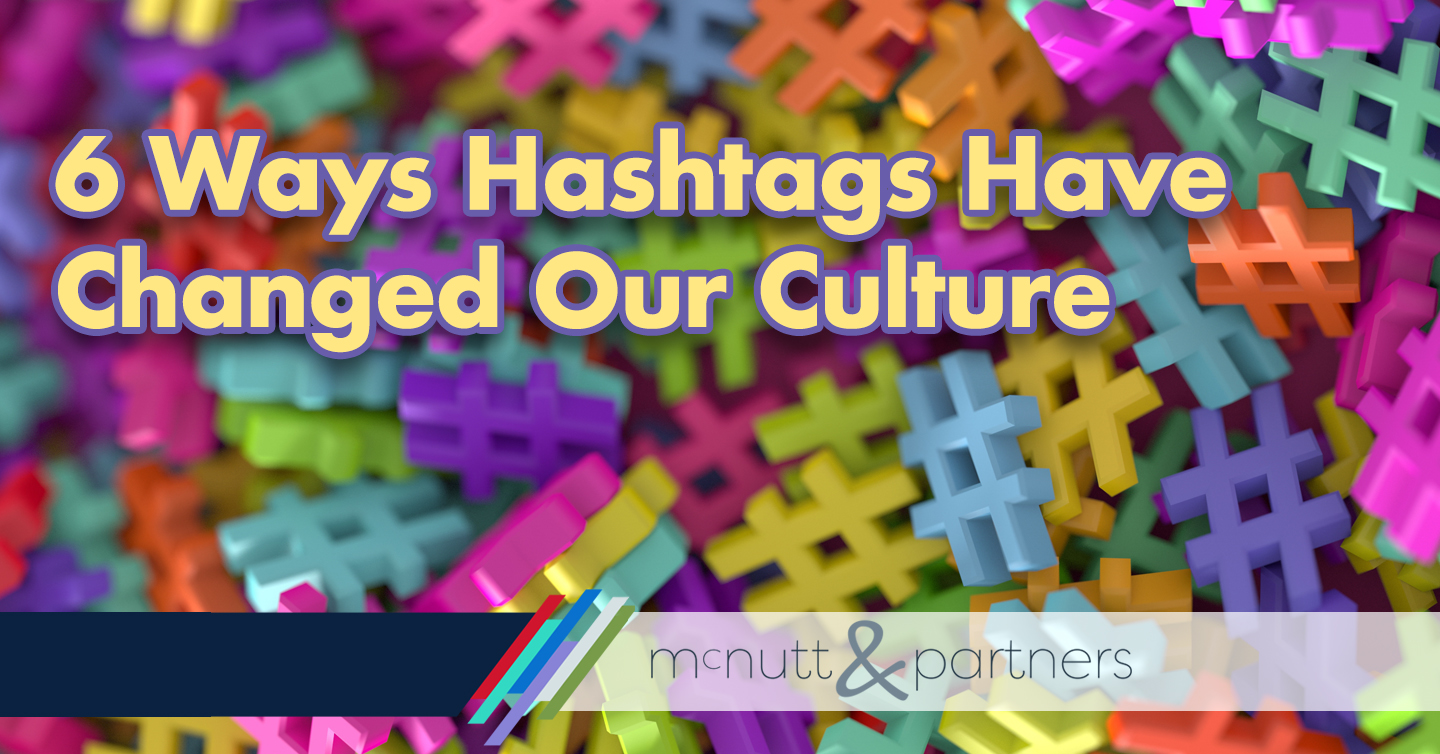The tic-tac-toe-looking symbol that populates digital media today is one that the millennial generation and beyond once solely associated with a telephone. Eleven years ago, the same symbol that represents “pound” on a telephone opened up an entire new world of connectivity when it became the social media hashtag. Since then, hashtags have changed our culture in numerous ways.
Hashtags didn’t just get their start on social media, however. In programming culture, the # symbol was referred to as the “hash,” rather than the pound sign. In 1988, the first hash symbol for grouping purposes appeared on Internet Relay Chat (IRC), where it was used to label common groups and topics. In August 2007, inspired by IRC, Chris Messina used the first hashtag on Twitter—and the rest was history. It did not catch on immediately, however. It took an event of nationwide importance—the 2007 California wildfires, for the hashtag to really catch on with #SanDiegoFire.
So how does the hashtag affect our everyday lives? Here are a few ways that hashtags have changed our culture since their social media inception.
- News events proliferate more quickly. Such was the case with the first hashtag that really took off (#SanDiegoFire) and such is the case still today. Hashtags become especially helpful and relevant when a major news event is taking place. They allow social media users to follow one hashtag link to receive a plethora of similar information about said news event. No longer are we limited to hearing the news from anchors on TV. Hashtags essentially let the average person report and disseminate the news in real time.
- Cultural movements have a platform. One of the most current and prolific examples of this is the #MeToo movement, which serves to call attention to sexual abuse and give a voice to victims of it. Known as “hashtag activism,” using hashtags to inspire and spread societal change is another way that hashtags have changed our culture. Other instances of hashtag activism include #BlackLivesMatter, #TimesUp, #TakeAKnee, #OscarsSoWhite and so on.
- Hashtag holidays are a thing. Every day is a holiday with hashtags. There are hashtag holidays for virtually every topic, like #NationalTacoDay, #PositiveThinkingDay, #NationalRelaxationDay, #CheerUpTheLonelyDay—the list goes on and on, with full calendars available online outlining which hashtag holiday it is on any given date. Every day, there is essentially something to celebrate, something to raise awareness for or even some action to take, thanks to this cultural phenomenon.
- Social media users can see more of what they like. Much like following a person or a brand that they like, social media users can follow hashtags that they like. For example, if you follow “#atlfoodie” on Instagram, your feed will then show you posts, even from accounts you don’t follow, on which #atlfoodie was used—presumably, delicious food in Atlanta. Conversely, the hashtags you use on your social posts may show up on the feeds of users following those hashtags. This can be beneficial from a marketing standpoint.
- Wedding hashtags are a staple. Though they started out pretty simple (#SmithWedding), wedding hashtags have now inspired a need to get as creative as possible with puns, plays on words and alliteration (#SmittenForSmith). Consider #SayYesToTheKress, #MorganHeBargainedFor, #KellysCupOfJoe, etc. Not only do these provide a catchy, memorable association to serve as essentially the tagline of your wedding, but they allow you to easily locate one’s wedding-associated posts that others have posted on social media. This same concept goes for any type of local event: a fund raiser, a festival or even a family reunion.
- We (sometimes) say them out loud. This one’s just a spinoff of all of the above. Hashtags have become so ingrained in what we read and write on screen, that sometimes they even come out of our mouths. Think of it as a shortened version or summary of what you are thinking. For example, your friend tells you an uncomfortable story, and you reply: “Hashtag awkward,” rather than saying, “Wow, that’s a really awkward situation.” Those using hashtags in this sense are basically shortening their speech using the all-encompassing hashtag.
The ways that hashtags have changed our culture over the past decade range from everyday speech to entire societal movements. Having had this much of an influence on the way we use social media already, time will only tell what’s in store for the future of the hashtag regarding social media.
Need help crafting an effective hashtag? Click the link to learn more.
McNutt & Partners is a full-service advertising and digital marketing agency. Contact us today for your marketing needs! Call 334-521-1010, or visit our contact page.

